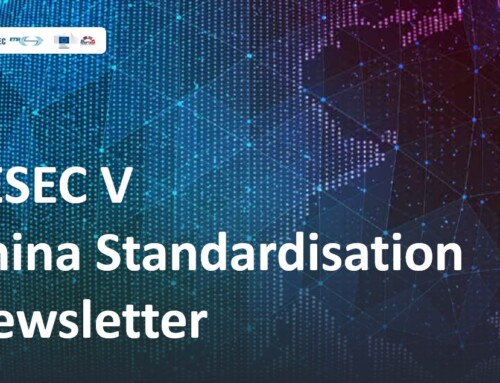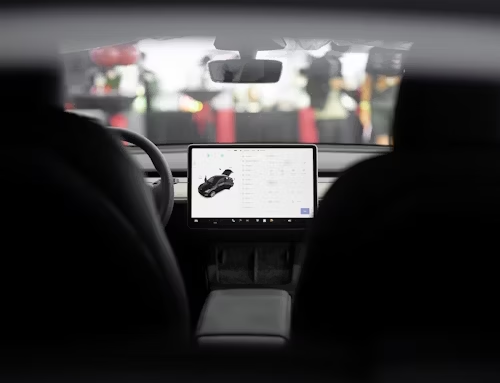On March 6, 2025, the 2025 first working meeting of the Overall Group for National Intelligent Manufacturing Standardization was held in Beijing. Zhao Fengjie, Director of the Intelligent Manufacturing Division of the Department of Equipment Industry I of the MIIT, attended the meeting and delivered a speech. Fan Kefeng, Deputy President of the China Electronics Standardization Institute (CESI), delivered a welcome speech on behalf of the leading organization of the Overall Group. Nearly 40 participants attended the meeting, including representatives from the deputy leading organizations such as the Instrumentation Technology and Economy Institute (ITEI), China Academy of Information and Communications Technology (CAICT), China National Institute of Standardization (CNIS), Shanghai Institute of Process Automation and Instrumentation Research, and China General Technology Machine Tool Research Institute; representatives from the standardization technical committees of 14 key industries such as automotive, machine tools, rail transportation, steel, and home appliances; and standardization leaders from companies such as Huawei, CRRC, Haier, and SmartMore.
Director Zhao Fengjie pointed out that after a decade of exploration, standardization in intelligent manufacturing has achieved significant breakthroughs in the application-oriented standards domain, but foundational standards still need to be strengthened, and the application ecosystem of standard clusters urgently requires improvement. He emphasized that the Overall Group should seize the opportunity of the new round of technological revolution and industrial transformation to promptly propose a new version of the Intelligent Manufacturing System Architecture. This includes forward-looking planning in cutting-edge areas such as industrial intelligence and cloud-based control systems, accelerating efforts to address key shortcomings in areas like industrial data dictionaries, industrial communication protocols, and factory operating systems. He also called for the development of tools for standards conformity assessment, to promote broader adoption of standardization outcomes across enterprises. Moreover, he stressed that the Overall Group should continue to leverage international platforms such as China-Germany cooperation and BRICS cooperation, put forward more international standard proposals, and enhance China’s global influence in intelligent manufacturing.
During the meeting, experts from the advisory group engaged in in-depth discussions around the theme of “Upgrading Intelligent Manufacturing Standardization.” They unanimously called for accelerating the development of standards for integrated applications of artificial intelligence, strengthening standard layouts in areas such as intelligent products, advanced manufacturing technologies, and industrial model innovation, and actively cultivating standardization promotion organizations.
Representatives from the Standardization technical committees in 14 industries offered targeted suggestions based on industry practices, emphasizing the need to deepen the integration of standards with specific application scenarios. For example:
- The National Technical Committee for Automotive Standardization (TC114) proposed formulating standards for dynamic reconfiguration of intelligent manufacturing production lines in response to demands for flexible manufacturing and customized production.
- The National Technical Committee for Metal Cutting Machine Tool Standardization (TC22) recommended establishing a “Smart Equipment Standards Research Group” to define intelligent machine tools and their functional distinctions, thereby enhancing the competitiveness of domestic high-end equipment. They also proposed joint efforts with the National Technology Standard Innovation Base for standards development and promotion.
- A representative from the China Household Electric Appliance Research Institute suggested developing standards for personalized customization and online monitoring of production quality in the appliance sector, aiming to build a comprehensive standard system for the industry.
- The National Technical Committee for Building Materials Equipment Standardization (TC465) noted that leading enterprises in sectors like cement and glass have begun developing enterprise-level intelligent factory standards. They suggested strengthening guidance to align enterprise standards with national and sector standards.
- Enterprises such as Huawei and SmartMore proposed building a standard service platform for industrial intelligence, offering standardized solutions for typical scenarios like AI-based quality inspection and predictive maintenance.
The Overall Group for National Intelligent Manufacturing Standardization is the key coordinating body for China’s intelligent manufacturing standardization efforts. It has played a central role in establishing the foundational framework for standard development in this sector. The recent meeting highlighted China’s growing commitment to addressing existing weaknesses, promoting the practical application of standards, and expanding its global influence in the field. As the group moves toward updating China’s intelligent manufacturing standards system—with greater integration of artificial intelligence—European stakeholders are encouraged to strengthen dialogue and actively participate in the process. This will help facilitate EU-China standard harmonization and ensure mutual compatibility in future industrial ecosystems.




